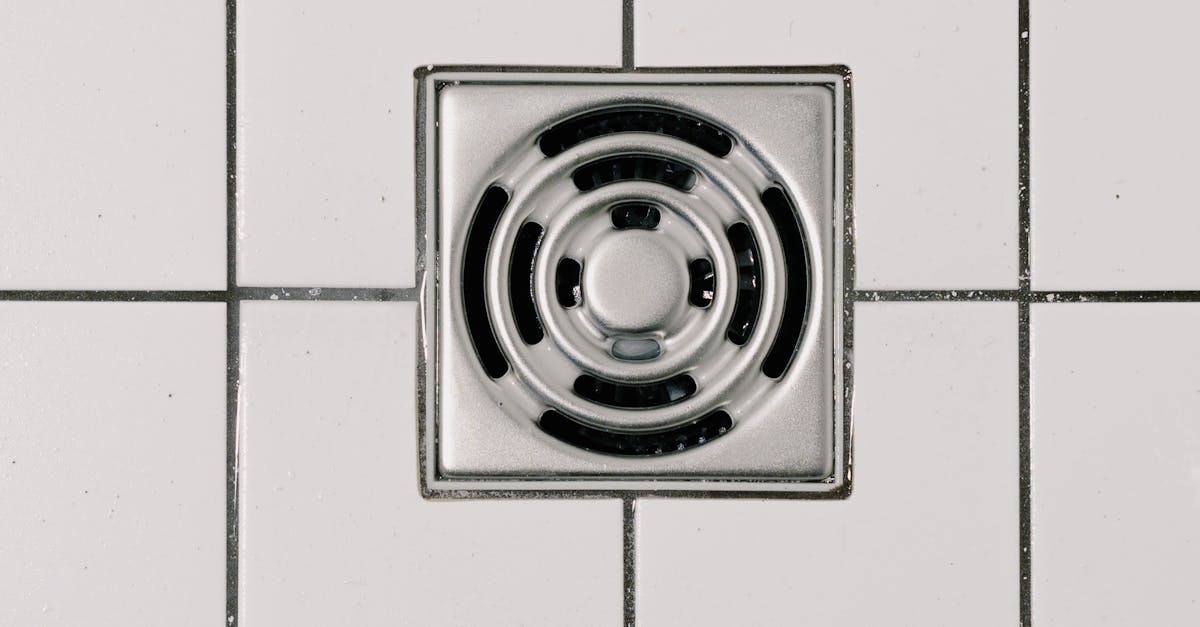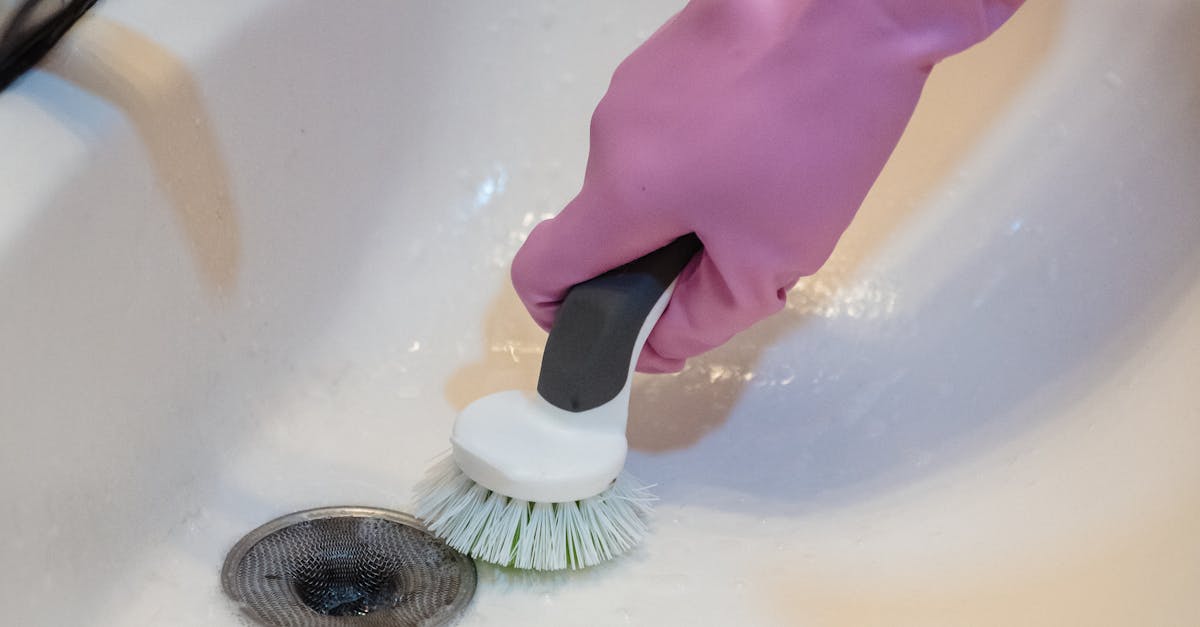
Table Of Contents
Applying commercial drain cleaners
When faced with a stubborn clog in your drain, one of the common solutions is to utilize commercial drain cleaners. These products are easily accessible at most stores and are formulated to break down blockages and restore proper drainage in sinks, showers, or tubs. When choosing a commercial drain cleaner, consider the type of clog you are dealing with to ensure you select the most suitable product for the job. If you are uncertain about the right product to use, conducting a quick search for "Drain cleaning near me" may help you locate a professional service or retailer that can provide guidance on effective products for your specific situation.
Precautions and best practices for using chemical cleaners
When using chemical cleaners to clear a deep clogged drain, it is crucial to follow safety precautions. Always wear protective gear such as gloves and goggles to avoid any skin or eye irritation. Additionally, ensure that the area is well-ventilated to prevent inhaling harmful fumes. Before pouring the chemical cleaner into the drain, carefully read and follow the manufacturer's instructions to prevent any accidents or damage to the pipes.
Remember that chemical cleaners are powerful agents that can effectively dissolve clogs, but they can also be harmful if not used correctly. Never mix different types of cleaners as this can lead to dangerous chemical reactions. After using a chemical cleaner, rinse the area thoroughly with water to remove any residue. If you are unsure about using chemical cleaners, it's advisable to seek professional help by searching for "Drain cleaning near me" to prevent any mishaps.
Flushing out the clog with hot water
One effective method to clear a deep clogged drain is by utilizing hot water. This simple yet powerful technique can sometimes work wonders in dislodging blockages within your pipes. Boiling water is poured down the drain, helping to break up the clog and flush it away. It's a relatively safe and environmentally friendly approach that can be a quick fix for minor obstructions. If you are dealing with a stubborn clog, it's worth considering pouring hot water down the drain as an initial step before moving on to more aggressive measures like chemical cleaners or calling a professional for drain cleaning near me.
However, while hot water can be a valuable tool in your efforts to clear a clogged drain, it does have its limitations. Hot water is most effective on clogs caused by greasy substances or soap scum that have accumulated in the pipes. It may not be as successful in breaking down solid blockages such as hair or larger debris. Additionally, when using hot water to clear a clog, be cautious not to scald yourself or cause damage to your pipes. It's essential to follow safety guidelines and assess the severity of the clog before attempting to use hot water as a solution.
The benefits and limitations of using hot water to clear drains
Hot water offers a simple yet effective method to unclog drains. The high temperature of the water can help to break down and dislodge debris that is causing the blockage. By pouring hot water down the drain, you can potentially clear minor clogs without the need for harsh chemicals or tools. This method is environmentally friendly and safe for most types of pipes, making it a convenient option for regular maintenance. However, it is important to note that hot water may not be effective for all types of blockages, particularly those caused by solid materials or extensive build-up. In such cases, it is advisable to seek professional drain cleaning near me services for thorough removal of the clog.
While using hot water to clear drains can be advantageous, it does have its limitations. For instance, hot water may not be sufficient for severe clogs that require more powerful interventions. Additionally, if the blockage is caused by grease or oil, hot water alone may not be able to fully dissolve these substances. In such situations, it is recommended to combine hot water with other methods such as utilizing a drain snake or seeking assistance from a professional plumber for effective results. To prevent further issues and maintain optimal drainage, regular maintenance and proactive measures are essential.
Preventing future clogs
To prevent future clogs in your drains, it is important to implement regular maintenance practices. Check for any build-up of debris or hair in your drains and remove it promptly to avoid blockages. Consider using a drain strainer to catch larger particles before they go down the drain. Additionally, avoid pouring grease, oils, or coffee grounds down the drain as they can solidify and cause blockages. It is also advisable to schedule a professional drain cleaning service periodically. Search for "Drain cleaning near me" to find reputable professionals who can help ensure your drains remain free-flowing and clear of clogs. Regular maintenance can significantly reduce the likelihood of experiencing deep clogs that require more aggressive measures to clear.
Maintenance tips to keep your drains clear
Maintenance is key to preventing future clogs in your drains. Regularly scheduling professional drain cleaning near me can help in keeping your drains clear and free from blockages. Additionally, avoiding disposing of grease, oil, or food scraps down the drain can contribute to maintaining a clear flow.
Another effective maintenance tip is to use drain strainers in your sinks to trap hair, soap scum, and other debris from going down the drain. By regularly cleaning these strainers, you can prevent build-up that may lead to clogs. Moreover, pouring hot water down your drains weekly can help dissolve any small blockages that may be forming and keep your pipes clear.
FAQS
What should I do if the commercial drain cleaner is not working to clear a deep clog?
If the commercial drain cleaner is not effective, try using a plunger or a drain snake to physically remove the clog.
Are chemical drain cleaners safe to use in all types of pipes?
Chemical drain cleaners can cause damage to certain types of pipes, especially older or fragile ones. It's important to read the instructions carefully and choose a product that is safe for your specific plumbing system.
How often should I flush out my drains with hot water to prevent clogs?
It's recommended to flush out your drains with hot water at least once a week to help prevent clogs from forming.
Can I use hot water to clear a deep clog on its own?
Hot water can be effective for minor clogs or as a preventive measure, but for deep clogs, it's best to combine hot water with other methods like using a plunger or a drain snake.
What are some maintenance tips to prevent future clogs in drains?
To prevent future clogs, avoid pouring grease or oil down the drain, use drain guards to catch hair and debris, and consider scheduling regular professional drain cleanings to keep your plumbing system running smoothly.


